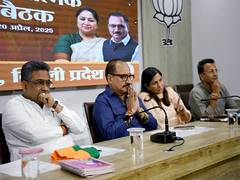Delhi hospitals witness spike in emergency patients as air pollution increases: AIIMS
New Delhi [India], November 2 (ANI): With the arrival of winter, the national capital is once again witnessing a deteriorating quality of air. On Thursday, the city’s Air Quality Index (AQI) was at 343, which falls in ‘very poor’ quality for the fifth consecutive day, triggering the risk of health emergency.
A study conducted by the top four hospitals on the relationship between rising pollution and emergency cases coming to hospitals showed that deteriorating air quality has a severe impact on human lungs and overall health. The study that was conducted between 2017 and 2019 included the All India Institute of Medical Sciences (AIIMS), Delhi; Kalavati Saran Children’s Hospital; Vallabhbhai Chest Institute; and the National Institute of TB and Respiratory Diseases Hospital.
To carry out this study, the hospitals daily monitored the health of the patients coming to the emergency wards. Also, data on outstation patients were collected, including those living in Delhi for three to four weeks.
According to Dr SK Kabra, who is the HOD of the Paediatric Department of AIIMS Hospital, the number of emergency patients in these hospitals records a spike when the pollution in the city increases. Dr. Kabra, citing the same study, said that the rising pollution in the city causes adverse effects on the health of children and adults, sometimes even leading them to admission to the hospital.
“The need to go to the emergency room arises when the condition of a patient is very serious,” said Kabra.
Speaking about the study, the doctor of AIIMS Hospital said that both children and adults were included in this study, which was conducted for about 2 years. During this period, more than 1 lakh children came for treatment in the emergency of AIIMS and Kalavati Sharan Children Hospital in Delhi, out of which respiratory problems were seen in 25 per cent of the children and around 70 thousand adults, out of which 10 per cent of people were found to have respiratory problems.
In such a situation, the serious effects of pollution were seen more in children.
During this study invited by ICMR, it was also observed that the patients who came to emergency hospitals with problems caused by pollution did not include those who were already suffering from any serious disease; rather, they included those not suffering from any serious diseases.
There were also people who had been living in Delhi for the last few weeks and were facing respiratory problems like chest pain, a severe cough, difficulty breathing, etc.






